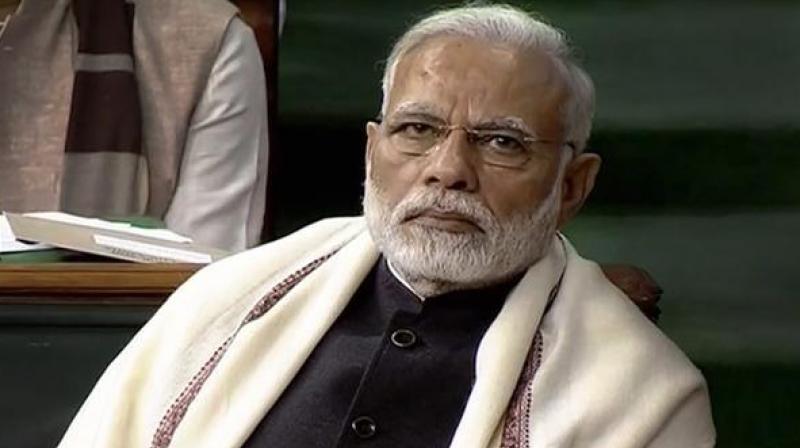As the first session of the 17th Lok Sabha commences, all the elected MP’s are set to take their offices after being sworn-in by the pro-tem speaker of the 17th Lok Sabha Shri Virendra Kumar, who himself was earlier sworn in by the President. This is the first session of the lower house after the fiercely fought elections, which witnessed the NDA emerging victorious with more than 350 MPs in their camp. The Monsoon budget session in the Lok Sabha will provide 30 sittings spread over 40 days from June 17 to July 26, in which several key bills are poised to be tabled and are also expected to be passed by the house in a streamlined fashion.
One of the most important bills that await to be tabled is the Muslim Women (Protection of Rights on Marriage) Bill, 2019 or more commonly called the Triple Talaq Bill, which the Union Cabinet chaired by the Prime Minister Narendra Modi has approved to replace the Muslim Women (Protection of Rights on Marriage) Second Ordinance, 2019 (Ord.4 of 2019). This bill thought of as a huge step forward in the protection of rights of Muslim women had faced opposition from various political parties in 16th Lok Sabha. In this term too, the path for the bill looks smooth in the Lok Sabha where NDA enjoys a clear majority, however, the bill may again face resistance in the Rajya Sabha, as the NDA is yet to get a majority in the upper house. NDA’s close ally JD(U) has also been a vocal opponent of the bill, and might further add to resistance against this bill.
The bill proposes to declare the practice of triple talaq as void and illegal. It also prescribes a penalty of up to three years’ imprisonment for an offence, and provides for subsistence allowance to married Muslim women and their children.
“The Bill would ensure gender equality and gender justice to Muslim women. The Bill would also help in protecting the rights of married Muslim women and prevent divorce by practice of ‘talaq-e-biddat’ by their husbands. The Bill will be introduced in the forthcoming session of the Parliament.” said a press release.
Other important bills to be included in the session is The Aadhar and Other Laws (Amendment) Bill, 2019. This bill is supposed to replace the Aadhar and Other Laws (Amendment) Ordinance, 2019. The amendments proposed are the same as those contained in the Ordinance promulgated by the President on 2nd March 2019. The amendments propose deletion of section 57 of the Aadhar Act relating to the use of Aadhar by private entities. After the amendments become law, Aadhar will be just one of the various ways in which citizens can identify themselves for mobile and banking services. These amendments are in line with the Judgment of the Apex court on the constitutional validity of Aadhar, last year. “The Aadhar and Other Laws (Amendment) Ordinance, 2019 amongst other things envisaged strengthening of the Aadhar Act as per the directions of the Supreme Court and recommendations of Justice B.N.Srikrishna (Retd) Committee.” read a press release.
The Modi government has also extended the President’s rule in J&K but it is still pending for parliamentary ratification. This extension is likely to be the last extension of the Centre’s rule over the state as the Election Commission had earlier announced that elections in Jammu and Kashmir would be announced after the annual Amarnath Yatra begins on July 1. Among all three bills, this one is likely to sail through.
PM Modi has already started with consensus building exercises to ensure smooth functioning of the house and had even called for an all-party meet on Sunday to discuss the same.
“When we come to parliament, we should forget ‘Paksha’ and ‘Vipaksha’. We should think about issues with a ‘Nishpaksh spirit’ and work in the larger interest of the nation.” The Prime Minister said as he addressed the media outside the parliament before the first session commenced.
